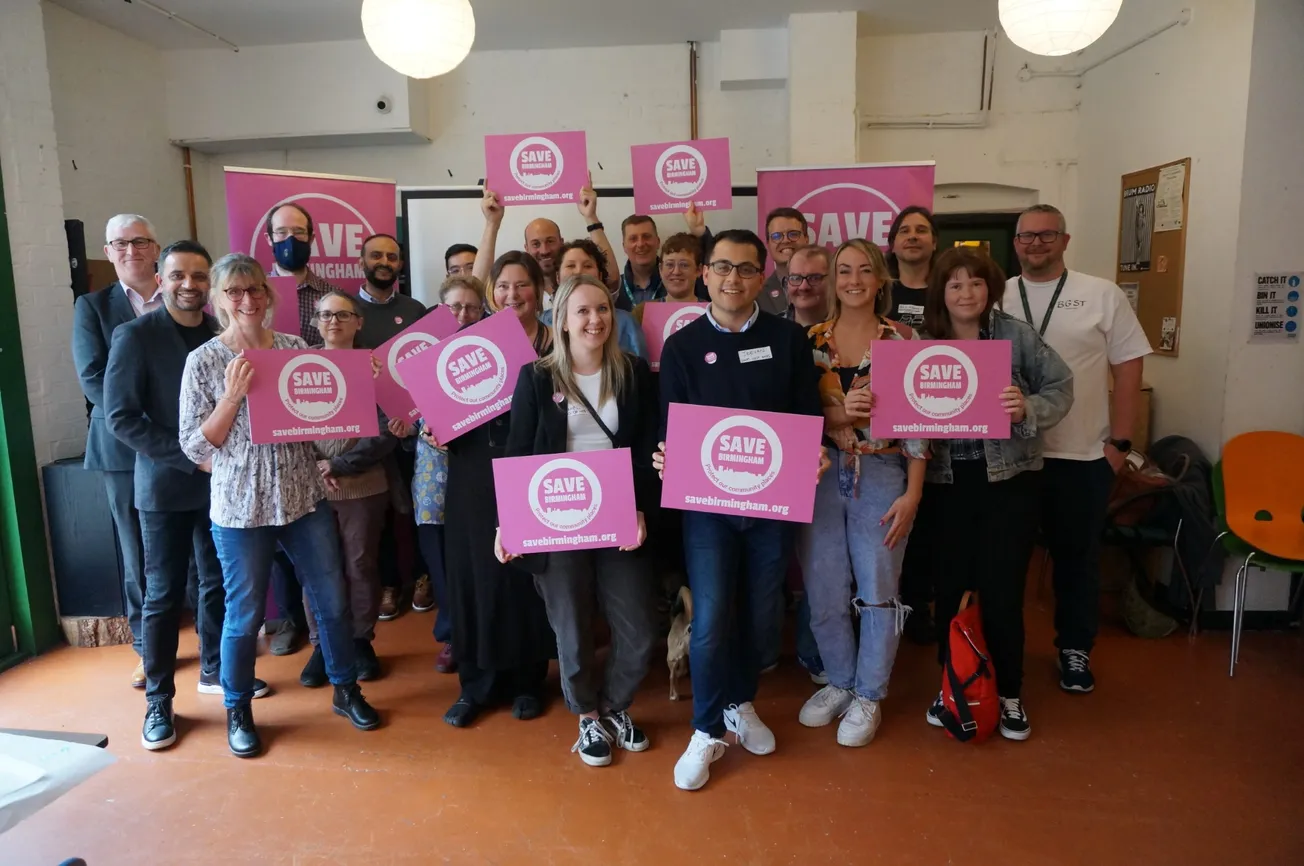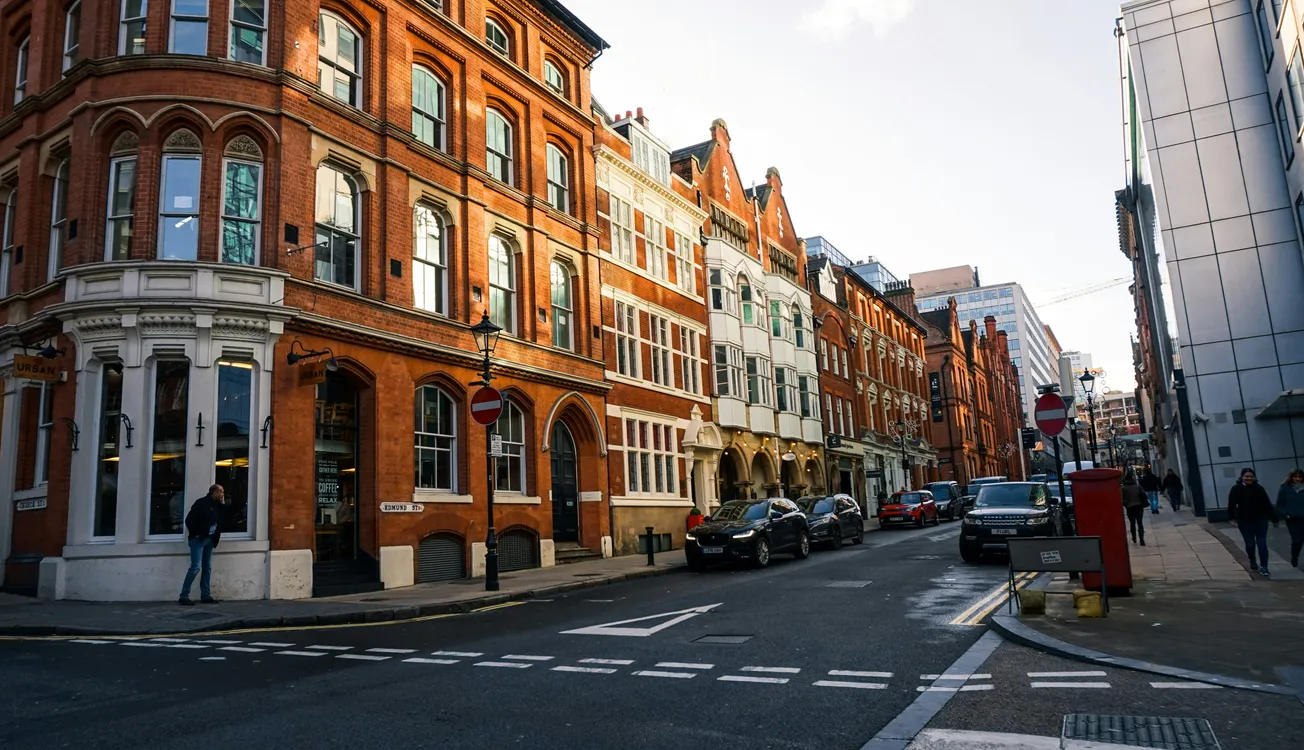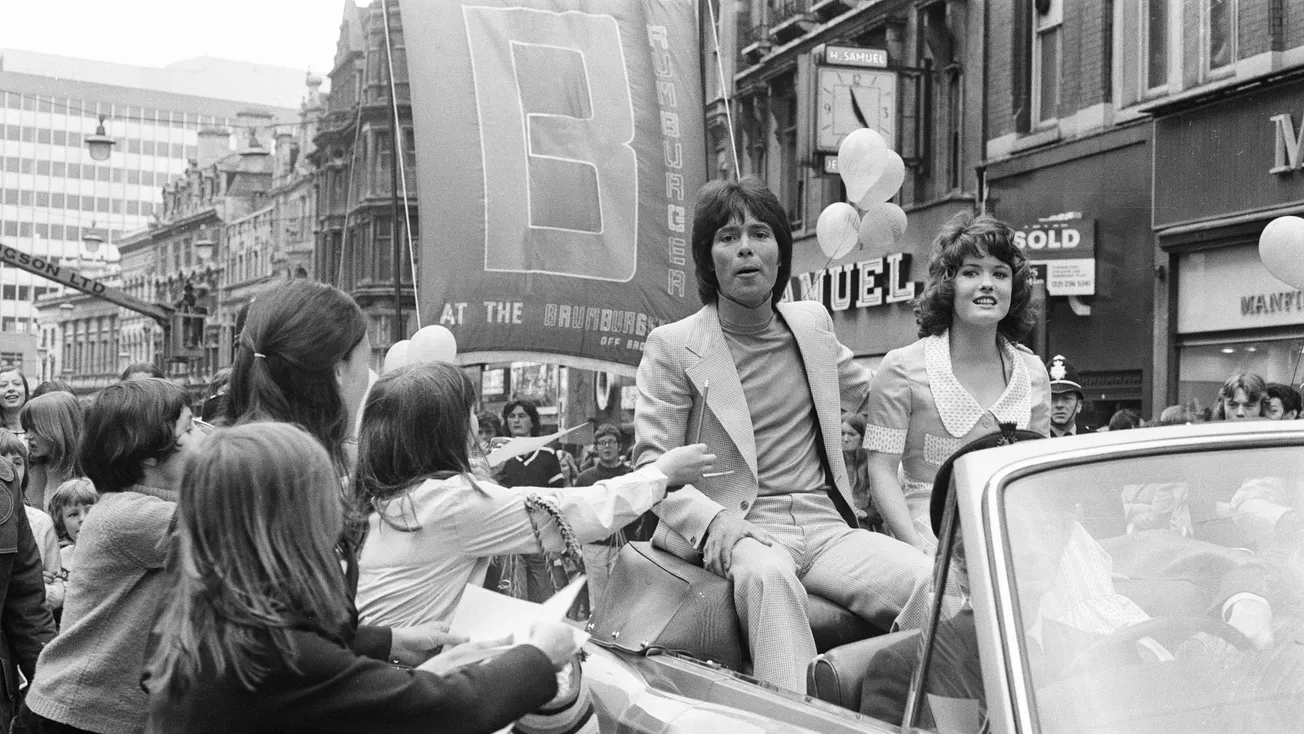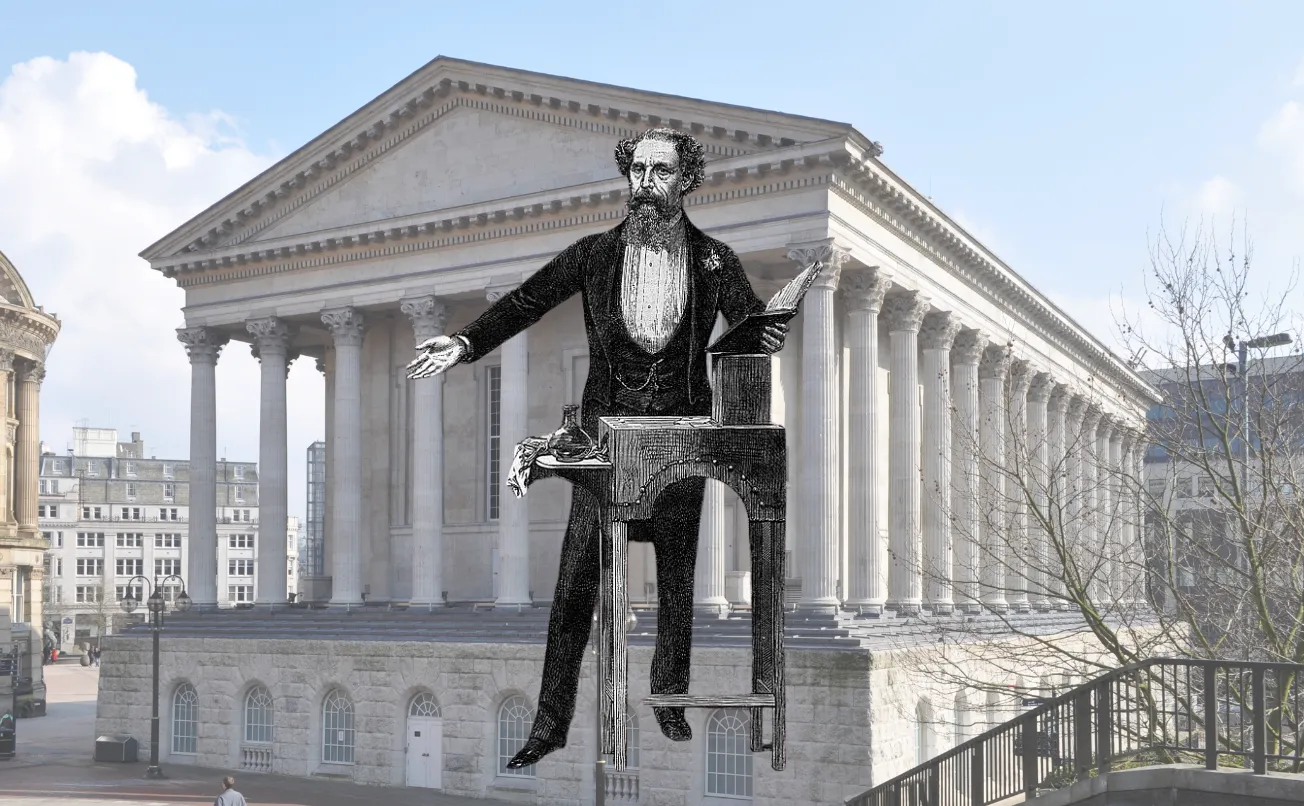Good morning readers and welcome to Wednesday’s Dispatch.
Today’s big story is about Save Birmingham - a campaign to protect places like museums, playing fields and parks from being sold off in the wake of city’s financial crisis. The campaign took a significant step forward last night when Birmingham City Council voted to work with the group to make sure community buildings and spaces are kept in public use.
Our Brum in Brief today brings news of an interesting report by the cross-party think tank Centre for Cities about the future of devolution and some fantastic old photos of SNOBS.
But before that: We’re about to hit 2,500 readers on our mailing list. Which means that if you recommend us to a friend this morning and they sign up, they might very well become our 2,500th member, a great honour. We’re currently on 2,477 thanks to a huge amount of sharing from hundreds of you (thank you). Please hit that button below to share us on social media or in your local Facebook group.
Brum in Brief
🌦️ The morning will be cloudy, windy and wet with bright skies in the afternoon and potential showers later on.
🏙️ Should the West Midlands, London, and Greater Manchester do a “triple deal” to form a new tier of local government? Think tank Centre for Cities has argued they should in proposals released this morning. Their report outlines adjustments in three categories which are represented as the three legs of a stool: funding, responsibilities, and governance. The idea is that fixing all of these areas at once will provide greater social and economic benefits because of the way they complement each other.
In practice, this would involve - but is not limited to - progressing devolution to give mayors greater fiscal powers so more money is raised and reinvested locally, primarily by a local share of income tax. Greater responsibilities include planning reforms to establish “spatial planning” which merges planning for housing, commercial and industrial property. First past the post would be replaced with either a Supplementary Vote system or an Alternative Vote system for mayors. Changes to board models would create a directly elected link between local places and scrutiny of mayors.
Centre for Cities researcher Ant Breach told me the point was to adapt the funding system and create “a more secure basis for local government, rather than having years and years of austerity and central governments really breathing down the neck of local authorities. [This will] give local authorities the freedom to make their own choices, letting them be held accountable by central government, but also by voters for the choices they make in terms of funding and how well they manage the local economy.”
🚨 Two more men have been arrested in connection with a fatal stabbing in Bordesley Green on Sunday. “Officers say they will be continuing to make enquiries which includes trawling CCTV and speaking to any witnesses.”
🐷 Black Sabbath’s anti-war ballad ‘War Pigs’ has won new fans after being used in the trailer for the new Napoleon film. “Like Beethoven, Mozart and all of the other great composers, you can imagine Sabbath’s made-in-Birmingham music will still be played and appreciated in 200 or more years’ in the future, too.”
🪩 The original SNOBS nightclub is remembered in this piece with some brilliantly nostalgic photos taken at its Paradise Circus location.
🕵️♂️ What sounds like a fun, one-man performance of Arthur Conan-Doyle’s classic Sherlock Holmes mystery Hound of the Baskervilles takes place tomorrow. “Expect atmospheric drama at its very best with this superb Victorian gothic thriller!”

Thanks so much to the 21 readers who have already pledged to become paying members when we turn on our paid subscriptions early next month. We’re very honoured to have your support and pleased to read your pledge messages (like the one above). If you’d like to pledge, please hit the button below.
The community plan to save some of Birmingham’s treasures
By Kate Knowles
One of the most unsettling aspects of finding out Birmingham City Council was de facto bankrupt was the confusion around what this actually meant in practice. The revelation that senior officers were issuing a Section 114 notice in early September was met with an outcry. It had been two months since a financial black hole was revealed. A mammoth equal pay claims bill had finally surfaced after years of internal wrangling. Not only the budget set for this year, but the accounts for the previous two years were now untenable. What on earth was going to happen?
Will services be cut? Are buildings going to be sold? Which ones? These were all reasonable questions from residents. The council announced that “all new spending, with the exception of protecting vulnerable people and statutory services, must stop immediately”. So, what is a statutory service? And how do you define “protecting the vulnerable”? It became clear in the aftermath that no one really had the answers. Indeed, the delayed response in the following weeks led the chief finance officer to issue a second 114 notice just two weeks after the first.
While all of this was unfolding, a group of Brummies gathered to digest the news. They were full of the same questions, but were also passionately driven to stop the city from losing its vital services and community spaces. Out of this meeting a plan was born - a plan to Save Birmingham.
“It just so happens a group of us were sitting around one evening and thought ‘let’s try and do something positive about it’, quit complaining and actually focus on solutions. And that's mainly what this campaign is about,” Jeevan Jones tells me. An economist by day and co-op enthusiast the rest of the time, Jones is one of the people coordinating a campaign to resist the firesale of community assets in the city.

Called Save Birmingham, it involves citizens nominating buildings and community spaces, like parks, to become Assets of Community Value. It’s a clunky term, but in effect it means that if the asset goes up for sale, the community can bid to purchase it if they have raised the funds within six months of it being listed. To date, more than 100 assets have been nominated, including the Town Hall, Stirchley Library and Lighthouse Youth Centre. If you are wondering how on earth a group of regular residents might afford to buy the Town Hall, you’re not alone.
Currently, the point of registering an asset is to delay its sale. The campaigners see this as crucial at a time when commissioners have been brought in to make hard and fast decisions to save money. Michael Gove has appointed Max ‘the axe’ Caller, who is known for his ruthlessness. When Caller was chief executive of Hackney Council in 2000, spending was so tight that one councillor reported: “We had to ask permission to put loo roll in staff toilets.”
But communities don’t need to put up huge sums of money to take over a park or library. The council can transfer assets, meaning it would continue to own a building but a community group would run it. The council would make a saving because it wouldn’t need to pay things like business rates or maintenance costs, but it would stay in public use. Last night Birmingham City Council voted to work with the Save Birmingham campaign to support community asset transfers and other community-led governance models where they provide the best and most sustainable solution to protecting the long-term future of assets.
The council is now run by government commissioners and that could continue for up to five years as they try to fill the gaping hole in the budget. Well placed sources have told The Dispatch that the commissioners are by no means a symbolic gesture from the government — they wield enormous power. It’s likely that little of importance will go ahead in Birmingham’s local government without their approval in the months and years ahead.
The situation is “acute”, Jones says. “We want them to sort out the finances and we're willing to work with them, but it's got to be done in a way that protects community places.” At this point, however, there has been no direct contact with commissioners. Will Caller ever go for it?
Jones claims to have heard from people who have worked with Caller in other cities that he does listen, and will change his mind if feasible solutions are presented to him. If successful, Jones thinks the campaign could have a nationwide benefit. As he puts it: “There's a watch list of councils - between 20 and 50 - which potentially might be in a similar place to Birmingham in the coming months. So in a way, this is Birmingham leading a potential community solution for other authorities to follow. We can learn from the past but also guide the future.”
Last night’s meeting could be the turning point in the story. A cross-party consensus to keep community spaces for the people who use them is a rare moment of cooperation in an otherwise sorely divided council. After months of bad news and bitter rows between politicians of all stripes, could there be a chink of light emerging at the end of a long, dark tunnel?
We’re doing a lot of reporting on the state of the council and its finance at the moment. If you have some knowledge or expertise to contribute, please get in touch…








Comments